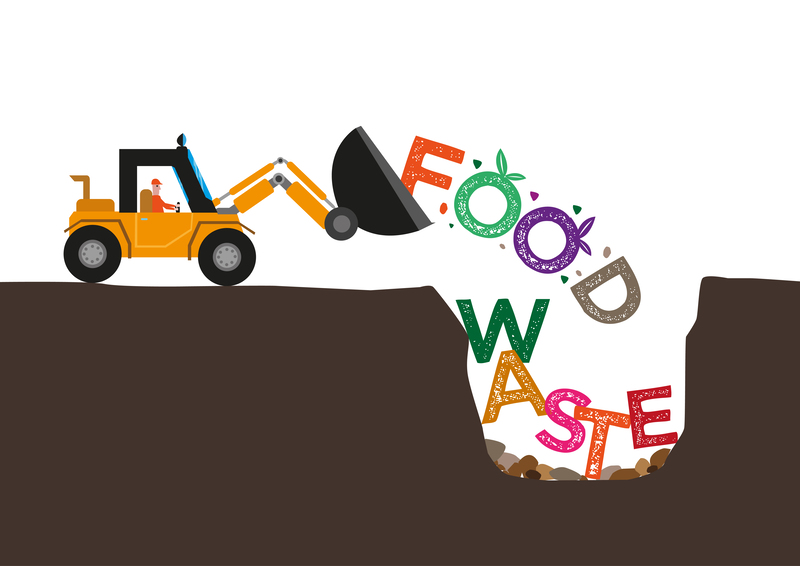Avoid Costly Mistakes with Bulky Waste Items: The Complete Guide
Every home or business owner eventually faces the challenge of disposing of bulky waste items. These can range from old furniture and broken appliances to mattresses, bathtubs, or even large garden waste. Improper disposal not only results in additional expenses but can also lead to environmental damage and hefty fines. For those wanting to avoid expensive mistakes, learning how to manage and dispose of these items properly is essential. This comprehensive guide details everything you need to know about avoiding costly mistakes with large waste items, including practical tips, local regulations, and eco-friendly alternatives.

Understanding Bulky Waste Items
Before considering how to deal with bulky waste, it's important to know what constitutes a bulky waste item. Typically, these are large, heavy objects that cannot be collected through standard curbside recycling or rubbish collection services. They often include:
- Furniture: sofas, wardrobes, beds, tables, chairs, dressers
- Large appliances: refrigerators, ovens, washing machines, dryers, air conditioners
- Mattresses and box springs
- Carpet rolls and large rugs
- Outdoor items: barbecues, fencing, playground equipment, garden sheds
- Bathroom items: bathtubs, toilets, sinks
Disposing of these items incorrectly can incur high fees or legal penalties. Therefore, understanding the right way to handle bulky waste disposal is crucial to avoid unnecessary expenses and hassles.
Common Mistakes People Make with Bulky Waste
Many people unknowingly commit errors that lead to extra costs and environmental impact. Here are the most frequent mistakes when dealing with large waste items and how to avoid them:
1. Illegal Dumping
Perhaps the most serious mistake is illegal dumping or fly-tipping. Leaving bulky items in unauthorized locations can result in steep fines and criminal charges. Many authorities now use surveillance to catch violators.
2. Ignoring Local Council Collection Rules
Each city or council has strict guidelines for bulky waste collections. Placing items outside without scheduling a pickup or not following collection schedules can attract penalties and leave your trash uncollected.
3. Underestimating Costs and Fees
Assuming that all bulky waste removals are free can be an expensive misconception. Many municipalities charge for collection, and inappropriate preparation of items can lead to additional charges.
4. Failing to Separate Hazardous Components
Certain bulky items, like refrigerators or electronics, contain hazardous materials. Not separating these can harm waste workers and the environment, while also breaching disposal laws.
5. Disregarding Alternative Disposal Methods
Throwing everything away is wasteful. Many bulky items can be donated, recycled, or refurbished, saving you money and benefiting others.
Best Practices for Bulky Waste Disposal
Following proper disposal methods can help you avoid mistakes with bulky waste and save considerable time and money. Here's how to manage these items efficiently:
Check Local Guidelines First
Most municipalities provide detailed information on how to handle bulky waste collection. Before discarding anything:
- Visit your local council's website
- Check for any required permits or forms
- Note collection schedules and limits on item types and volumes
Adhering to these rules helps you avoid fines and ensures your items are collected on time.
Arrange Bulk Item Pickups in Advance
Many councils and private companies offer scheduled bulky item pickups. This service often requires advance booking, especially during peak times like spring cleaning or moving season. This helps prevent items lingering on your property, which can attract pests or fines.
Prepare Items Properly
Failing to prepare items for collection is a common mistake. Ensure you:
- Remove doors from refrigerators and freezers
- Disassemble large furniture to manageable pieces
- Bundle or bag small items together
- Drain fluids from appliances like washing machines
Proper preparation ensures safe handling and can prevent extra disposal costs.
Consider Donation and Reuse
If your bulky waste item is still usable, consider donating to local charities, shelters, or giving items away via community groups. Donating saves you collection costs and helps others in need.
Use Licensed Waste Disposal Services
When opting for removal services, ensure they are licensed and reputable. Unlicensed operators may dump your items illegally, leaving you liable for any resulting fines.
Separate and Recycle Where Possible
Many components of bulk waste items are recyclable, including metals, plastics, and wood. Take items to a recycling center, or use separate waste streams during your council's collection.
How to Save Money When Disposing of Bulky Waste Items
Being cost-conscious when dealing with bulky waste is vital. Here are actionable tips for saving money on large waste disposal:
- Host a yard sale or post online: Many people are willing to pick up unwanted furniture or appliances for free if advertised online.
- Share the cost with neighbors: If several households require a bulky waste pickup, share costs of renting a skip or hiring a removal company.
- Utilize free council collections: Some municipalities offer free annual pickups. Schedule your disposal accordingly to take advantage of these services.
- Take items to council tips or recycling centers: Self-delivery is often cheaper than scheduled collections.
- Avoid last-minute removal services: Urgent bookings can be expensive. Plan ahead to avoid premium charges.
Legal and Environmental Considerations
Understanding the legal obligations attached to bulky waste disposal is essential. Many regions have strict penalties for improper disposal:
- Hefty fines: Illegal dumping or incorrect disposal can result in fines from hundreds to thousands of dollars or pounds.
- Liability: As the waste generator, you are responsible for ensuring correct disposal, even if hiring someone else.
- Criminal charges: In severe cases, illegal dumping can result in criminal prosecution.
On the environmental front, careless disposal leads to pollution, wildlife harm, and landfill overflow. Properly recycling and reusing reduces your carbon footprint and conserves resources.
Eco-Friendly Alternatives for Bulky Waste Disposal
Reducing landfill waste by choosing sustainable disposal is increasingly important. Here are some excellent alternatives:
- Upcycling: Convert old furniture into new, functional pieces with a bit of creativity and DIY effort.
- Charitable donations: Many organizations will pick up usable items for free and redistribute to those in need.
- Freecycling: Offer items online to local neighbors who can reuse or refurbish them.
- Community swap events: Organize or join local swap-meets to exchange items rather than throw them away.

Frequently Asked Questions about Bulky Waste Items
Which items are classed as bulky waste?
Generally, any large household or commercial object that cannot fit into regular trash bins is classified as bulky waste. This includes furniture, large appliances, electronics, and garden equipment.
Can I leave bulky items on the curb?
Only if you have arranged a scheduled pickup with your local council or a licensed removal company. Leaving items unscheduled often results in non-collection and possible fines.
Is it cheaper to hire a skip or use council collection?
It depends on item volume and your area's services. Shared skip hire may be cost-effective for multiple households, but many councils offer free or low-cost collections for a limited number of items.
What should I do with appliances containing hazardous materials?
Never dispose of these in general waste. Arrange safe collection via your council or specialist recyclers who can handle hazardous components such as refrigerants or electronic waste.
Conclusion: Make Bulky Waste Disposal Easier and More Affordable
Disposing of bulky waste items needn't be a costly headache. With the right knowledge and planning, you can avoid expensive mistakes, remain environmentally responsible, and even help your community. Check local guidelines, consider sustainable alternatives, and always use licensed services when required. By following these best practices, you'll keep your property tidy, save money, and contribute to a cleaner planet!
Remember, the right approach to bulky waste management not only saves you from financial penalties but also delivers lasting benefits for both your household and the wider environment.
